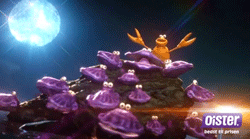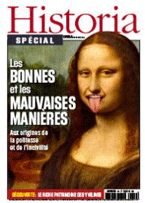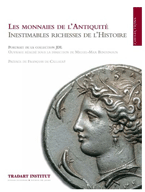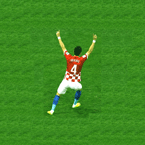 The KluwerCopyrightBlog is part of Kluwer’s IP Law portfolio. Whereas the blog serves as a platform where scholars and practioners can share their informed opinions on specific aspects of IP law and jurisprudence, the related Kluwer Copyright Cases Database aims to accumulate important (new and older) case law in the field of copyright in one database.
The KluwerCopyrightBlog is part of Kluwer’s IP Law portfolio. Whereas the blog serves as a platform where scholars and practioners can share their informed opinions on specific aspects of IP law and jurisprudence, the related Kluwer Copyright Cases Database aims to accumulate important (new and older) case law in the field of copyright in one database.
To satisfy the increasing curiosity about what is happening in the copyright courts of other EU member states, we regularly publish short overviews of cases that were recently added to the database. The selection of this month includes recently submitted cases from Denmark, France, Belgium and Croatia:
 Denmark: music fragment enjoys copyright protection
Denmark: music fragment enjoys copyright protection
Maritime and commercial court of Denmark, 18 August 2014, V-0035-13, Silverbullit and BliGlad v. CO + Høgh A/S & Oister Hi3G Denmark.
A group of singing oysters. The defendants were sentenced to pay a fair remuneration for the use of the works Oister taletid reggae and Oister reggae bølge, which the defendants had used after the termination of the agreed license period. The case also concerned the fundamental question whether or not a small fragment enjoyed copyright protection, in this case a fragment of the song Oister Oi. Said fragment was used by the defendants in another song, composed by a third party and meant to replace the song composed by the claimants for the TV-commercial of the defendants (the commercial featured a group of singing oysters). In the end of this new music track, a woman’s voice is singing Oister Oi with the exact same vocal and rhythm as in Oister taletid reggae and Oister reggae bølge.
The court ruled that the fragment was protected by copyright. The claimants were said to be skilled authors that had put a lot of effort in giving the fragment the right attitude and rhythm. The use of the fragment was also considered to be an indication of the originality of the fragment. (Case summarized by Maria Fredenslund, RettighedsAlliancen).
 France: works made by journalists
France: works made by journalists
Court of Cassation of France, Second Civil Law Chamber, 30 January 2014, case 12-24145, Historia.
The French Act of 12 June 2009 No 2009-669 established an automatic transfer system for works made by journalists. Under these new provisions, the rights with regard to works created by the journalists are automatically transferred to the newspaper publisher. This transfer is made solely by virtue of the employment agreement. The present ruling holds that this automatic assignment of rights does not apply to works published before the 2009 Act came into force.
Between January 2005 and April 2009 a journalist wrote articles for his employer the company Sophia Publications, which publishes the paper magazine Historia. Sophia Publications had then published again, on its website, several articles of this journalist. Sophia Publications had also assigned the right to publish certain of these articles to the Brazilian magazine Historia Viva.
The Supreme Court upheld the judgment of the Court of Appeal of Paris, ruling that the new provisions of Article L.132-36 of the Intellectual Property Code, introduced by the Act of 12 June 2009, which establish a presumption of transfer of the journalists’ rights in favour of the employer, do not apply to agreements entered into before that date. Since the articles written between January 2005 and April 2009 had not been subject to an agreement expressly authorising their reproduction in a new medium, Sophia Publications was not vested with the right to broadcast the articles on the Internet and to assign the rights to third parties. (Case summarized by Brad Spitz, YS Avocats).
 Belgium: Product photography (coins)
Belgium: Product photography (coins)
Court of Cassation of Belgium, 17 March 2014, C.12.0317.F, Tradart Institut
The Belgian Supreme Court confirmed a judgment of the Court of Appeal of Brussels that accepted the protection under copyright law of a photographic work that depicted coins.
In 2007 Mr. F., a specialist in numismatics, was asked to compose a catalogue of coins that were to be exposed in an exhibition. In 2008 part of the photographic work that Mr. F. made for the catalogue in 2007 was included in a book on ancient coins by Tradart Institut, without previously asking or informing Mr. F. The first judge ruled that the photographs were not sufficiently original to be copyright protected, whereas the Court of Appeal judged they were. The Supreme Court followed that decision.
In this case, it was relevant that Mr. F. represented the coins of different colour all in a very similar grey colour, in such a way that the illustrations on the coins were accentuated. The fact that this is the result of a technical method does not matter. Also, the same part of all coins was highlighted and some of the photographs were edited in order to create a more homogeneous composition. Therefore, Mr. F. did not simply slavishly photograph the coins. He made certain choices as a result of which the photographs representing the coins were the own intellectual creation of the author and were therefore sufficiently original to be protected under copyright law. (Case summarized by Jari Vrebos, Marx Van Ranst Vermeersch & Partners).
 Croatia: no copyright on sports betting format
Croatia: no copyright on sports betting format
Supreme Court of Croatia, 17 November 2010, 184/2009, Z.S. vs. P. sports betting Ltd.
The case concerned a dispute over a project of the claimant with regard to a kind of format for betting on sports matches (most goals, shots, points etc.). The Supreme Court of the Republic of Croatia followed the opinion of the lower courts, deciding that Claimant’s project cannot be regarded as a work covered by copyright protection and that defendant’s activities, related to organizing and offering sports betting, did not result in copyright infringement.
Claimant (Z.S.) sued the sports betting company P. Sports Betting Ltd., alleging that the defendant had infringed his copyright by organizing and offering a sports betting system that was based on a specific betting system/format developed by claimant and that the defendant thereby plagiarized claimant’s project. The claimant also argued that advertising with regard to the copyrighted work in the media without mentioning the author’s name also entailed liability for copyright infringement.
The Supreme Court ruled that claimant’s sports betting project did not represent a work covered by copyright protection, but regarded it as an application of procedures, methods and calculations that are already known, and that no infringement had been made by the defendant. Pursuant to Article 8 of the Copyright and Related Rights Act, as the Court stipulated, procedures, methods of operation or mathematical concepts are not subject matter of copyright. (Case summarized by Dora Jabuka & Iva Sunko, Vukic, Jelusic, Sulina, Stankovic, Jurcan & Jabuka, Rijeka).
A full summary of each case can be found on Kluwer IP Law
_____________________________
To make sure you do not miss out on regular updates from the Kluwer Copyright Blog, please subscribe here.
Kluwer IP Law
The 2022 Future Ready Lawyer survey showed that 79% of lawyers think that the importance of legal technology will increase for next year. With Kluwer IP Law you can navigate the increasingly global practice of IP law with specialized, local and cross-border information and tools from every preferred location. Are you, as an IP professional, ready for the future?
Learn how Kluwer IP Law can support you.


